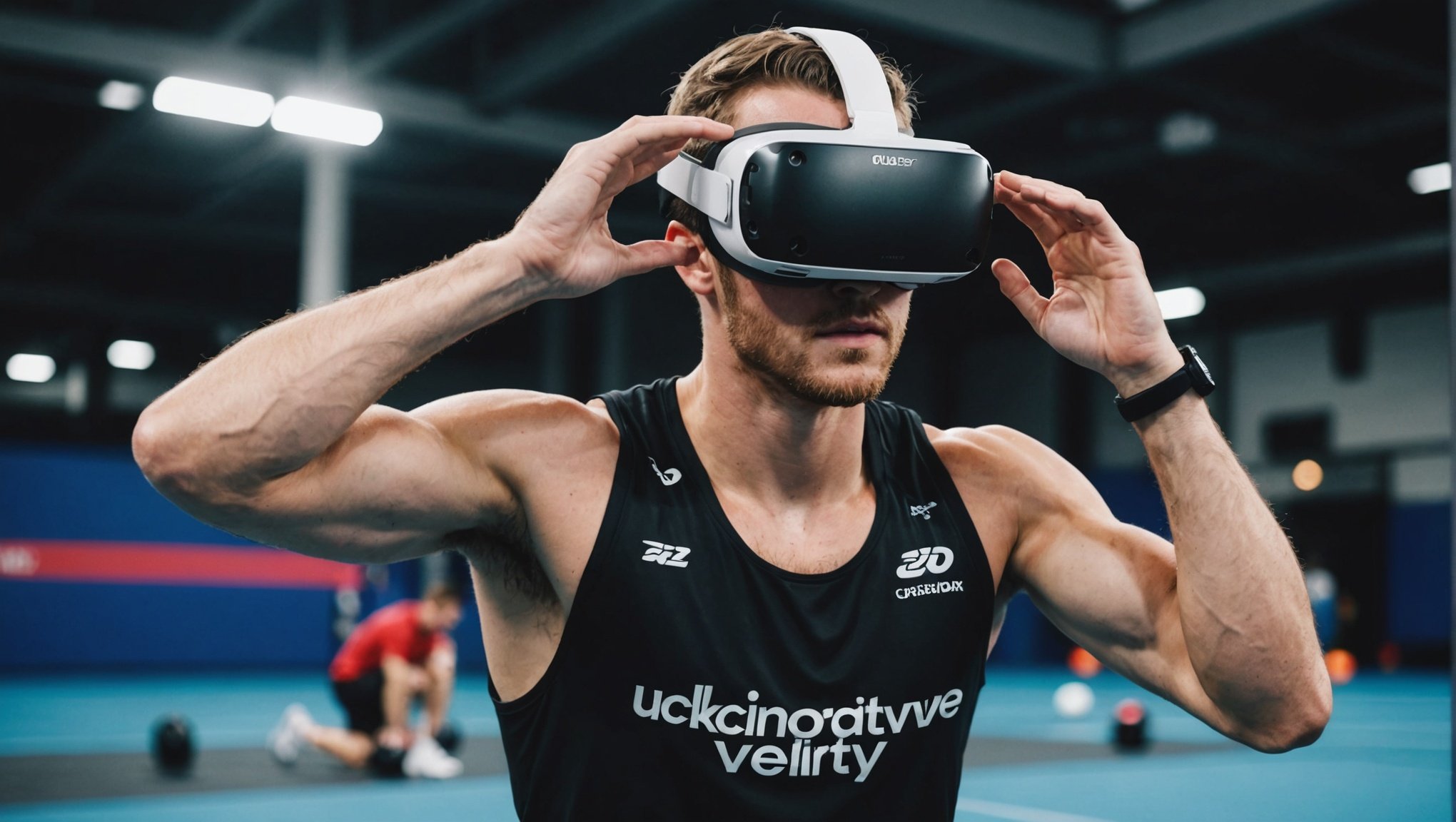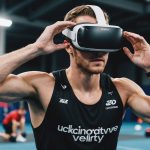Virtual reality (VR) is revolutionizing athlete training in the UK, offering immersive experiences that simulate real-life competition without the physical strain. By integrating VR into training regimens, athletes can enhance their skills, improve decision-making, and analyze performance in a risk-free environment. This innovative approach enables teams and individual athletes to unlock their potential, pushing the boundaries of physical and mental preparation. Explore how VR is reshaping the landscape of sports training and giving UK athletes a competitive edge.
Overview of Virtual Reality in Athletic Training
Virtual Reality (VR) is revolutionising athletic training by offering immersive experiences that enhance performance and technique. In the context of sports, VR simulates realistic environments, allowing athletes to practice without the physical constraints of traditional methods. This sports technology provides a controlled setting where athletes can refine skills, visualise strategies, and receive instant feedback.
In parallel : Unlocking Potential: The Advantages of Cross-Training Across Sports for UK Professional Athletes
Historically, the adoption of VR in athletics began as a niche experiment but has rapidly gained traction. Initially, it was used by elite sports teams to gain a competitive edge. Over time, advancements in technology have made VR more accessible, leading to broader adoption across various levels of sports. Today, VR is not just for professional athletes; it's increasingly common in amateur and youth sports training.
Current trends highlight the growing integration of VR in athletic training. Statistics reveal that a significant percentage of sports organisations are investing in VR technology to enhance their training programs. This trend is driven by the potential of VR to improve reaction times, decision-making, and overall performance. As VR technology continues to evolve, its role in athletic training is expected to expand, offering even more innovative solutions for athletes worldwide.
Topic to read : Boosting Match Attendance: Innovative Strategies for UK Amateur Football Clubs
Benefits of Virtual Reality for UK Athletes
Incorporating Virtual Reality (VR) into athletic training offers numerous advantages for UK athletes, significantly enhancing performance and engagement. By simulating realistic scenarios, VR provides a unique platform for athletes to hone their skills in a controlled yet immersive environment.
Performance Enhancement
VR technology has been shown to contribute to measurable performance improvements. By allowing athletes to practice specific techniques repetitively, VR helps in refining skills without the risk of physical injury. This continuous practice leads to better precision and efficiency in real-world sports scenarios. For instance, VR can improve reaction times by simulating high-pressure situations that athletes may face during competitions.
Athlete Engagement and Motivation
Another key benefit of VR is its ability to boost athlete engagement and motivation. Traditional training methods can sometimes become monotonous, leading to decreased enthusiasm. However, VR introduces an element of novelty and excitement, keeping athletes more engaged. The interactive nature of VR training sessions makes them more appealing, encouraging athletes to push their limits and stay committed to their training regimes.
Mental Training and Visualization
VR also plays a crucial role in mental training and visualization techniques. It allows athletes to mentally rehearse their strategies and tactics in a virtual setting, which is essential for building confidence and reducing anxiety before actual competitions. This mental preparation is as vital as physical training, as it enhances focus and strategic thinking.
In conclusion, the integration of VR into athletic training programs provides UK athletes with a comprehensive tool that not only improves physical performance but also enhances mental resilience and engagement.
Case Studies of VR Applications in UK Sports
Exploring the case studies of VR applications in UK sports reveals the transformative impact of this technology on athletic training. Various sports organisations have adopted VR to enhance their training regimens, yielding impressive results.
Examples of VR Utilisation
Several UK sports organisations, such as Premier League football clubs and Olympic training centres, have integrated VR into their training programs. These teams use VR to simulate match scenarios, allowing athletes to practice decision-making and strategy in a virtual environment. For instance, a leading football club employed VR to replicate penalty shootouts, helping players improve their focus and composure under pressure.
Success Stories and Outcomes
The success stories of VR in sports training are compelling. Athletes who have incorporated VR into their routines often report significant improvements in performance metrics. A notable example is a UK rugby team that used VR to enhance their defensive strategies. By visualising opponent movements in a virtual space, players developed better anticipation skills, leading to fewer missed tackles during actual matches.
Traditional vs. VR-Enhanced Training
Comparing traditional training methods with VR-enhanced training highlights the advantages of VR. Traditional methods often rely on physical repetition and analysis of past performances. In contrast, VR offers a dynamic and interactive platform that provides real-time feedback and adapts to the athlete's progress. This adaptability accelerates learning and skill acquisition, making VR a valuable tool for modern sports training.
Expert Opinions and Insights
In the realm of sports psychology and training innovations, expert opinions shed light on the transformative impact of Virtual Reality (VR) in athletic training. Coaches and sports psychologists alike have expressed enthusiasm for VR's potential to revolutionise training methodologies.
Coaches' Perspectives
Many coaches highlight VR's ability to provide athletes with a controlled environment for skill enhancement. For instance, a renowned football coach noted that VR allows players to experience game-like situations without the physical strain of traditional training. This method not only aids in technique refinement but also in developing strategic thinking.
Insights from Sports Psychologists
Sports psychologists emphasize the psychological benefits of VR. By simulating high-stress scenarios, athletes can practice mental resilience, which is crucial in competitive sports. One sports psychologist mentioned how VR helps athletes manage anxiety by allowing them to rehearse their responses to pressure in a virtual setting, enhancing their mental fortitude.
Future Predictions and Challenges
Experts predict that VR will continue to evolve, offering even more sophisticated training tools. However, challenges remain, such as the high cost of VR technology and the need for personalised training programs. Industry professionals stress the importance of balancing technological advancements with practical, accessible solutions for broader adoption in sports training.
Future Developments in VR Training Technology
The future of VR in athletic training is poised to be transformative, with emerging technologies promising to redefine how athletes prepare and perform. As VR continues to evolve, it is expected to integrate more seamlessly into sports training, offering enhanced and tailored experiences.
Emerging VR Technologies
New training technologies are being developed to create more immersive and realistic simulations. Innovations such as haptic feedback systems are set to add a tactile dimension to VR experiences, allowing athletes to feel physical sensations like impacts and resistance. This advancement will enable athletes to train under conditions that closely mimic real-life scenarios, improving their readiness for actual competitions.
Role of Artificial Intelligence
Artificial intelligence (AI) is playing a crucial role in enhancing VR training experiences. AI algorithms can analyse an athlete's performance in real-time, providing personalised feedback and adjustments to training programs. This capability allows for a more adaptive training regimen, catering to the specific needs and progress of each athlete. AI-driven VR systems can also simulate complex game strategies, helping athletes develop better decision-making skills.
Predictions for the Future
Looking ahead, experts predict that VR will become an integral part of athletic training, particularly in the UK. The future of VR in sports is likely to see widespread adoption across various levels of competition, from grassroots to professional leagues. As the technology becomes more accessible, it will democratise training opportunities, enabling athletes from diverse backgrounds to benefit from cutting-edge training tools. The continued innovation in VR promises to not only enhance performance but also revolutionise the way athletes approach their training routines.













